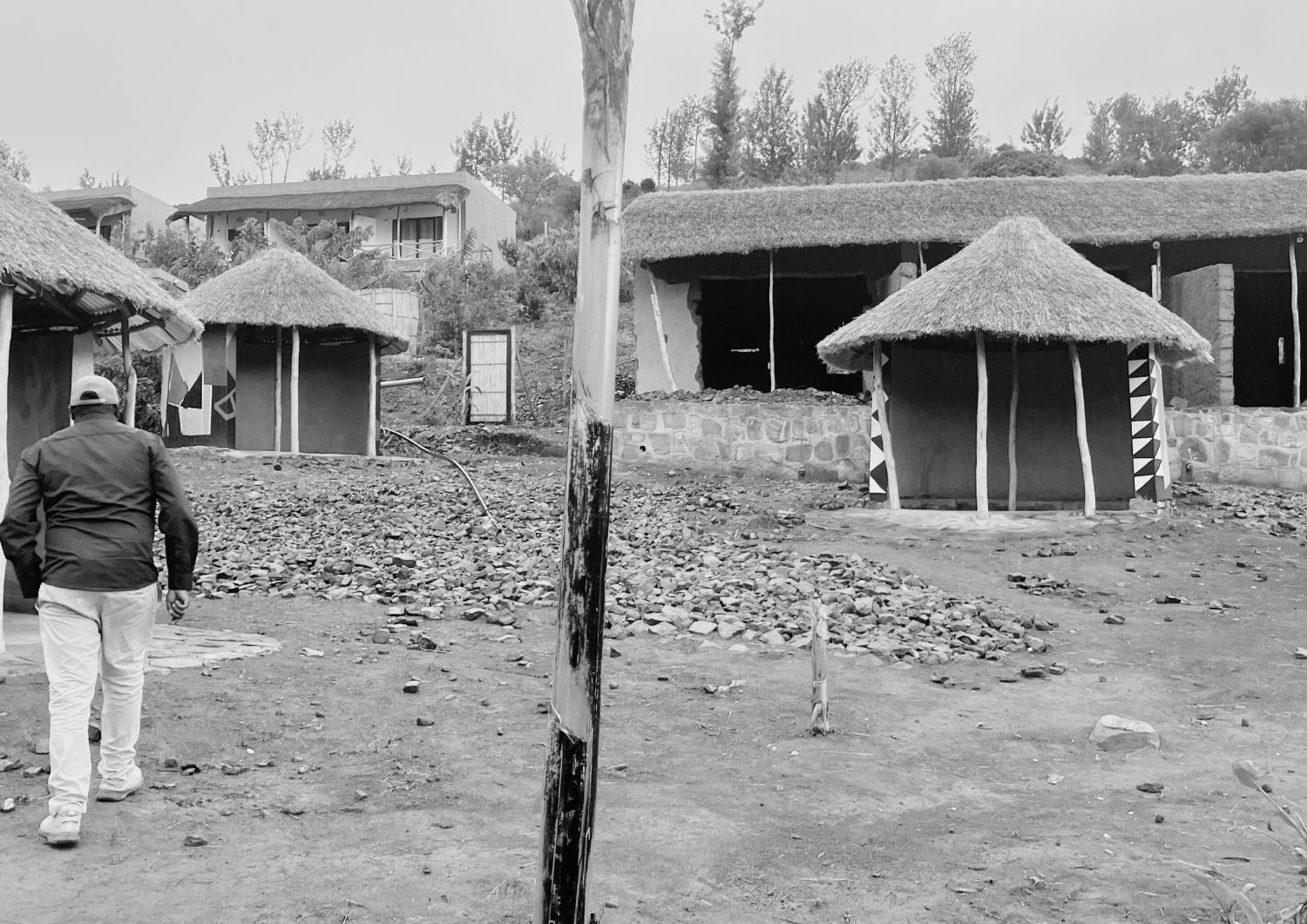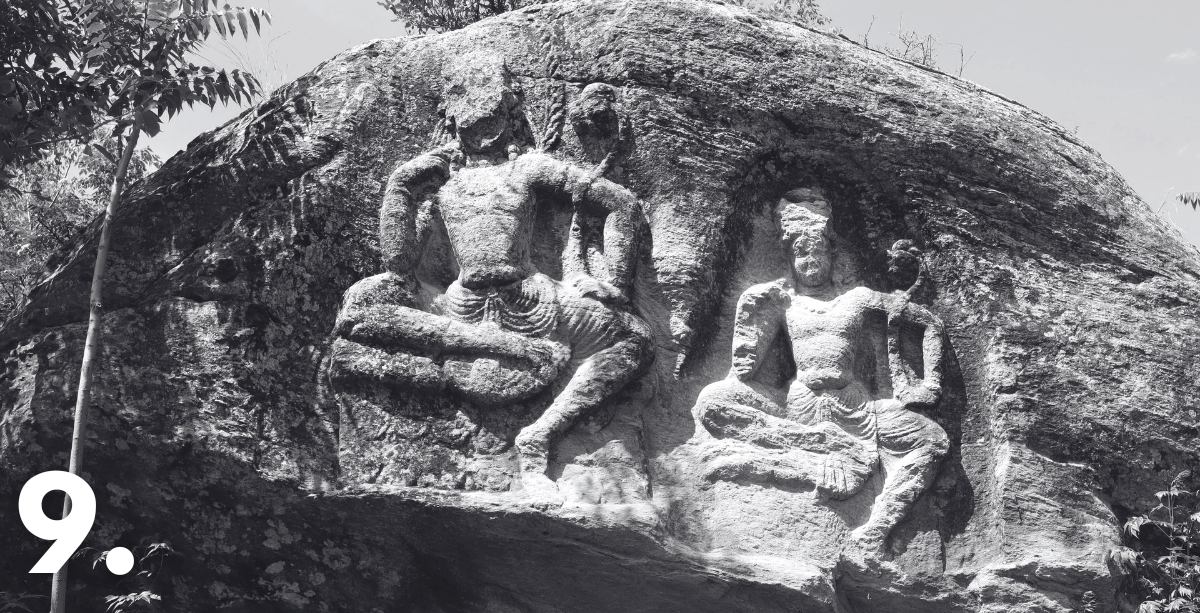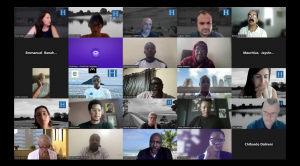: Mellon Foundation
New grants initiative for northern Mexico
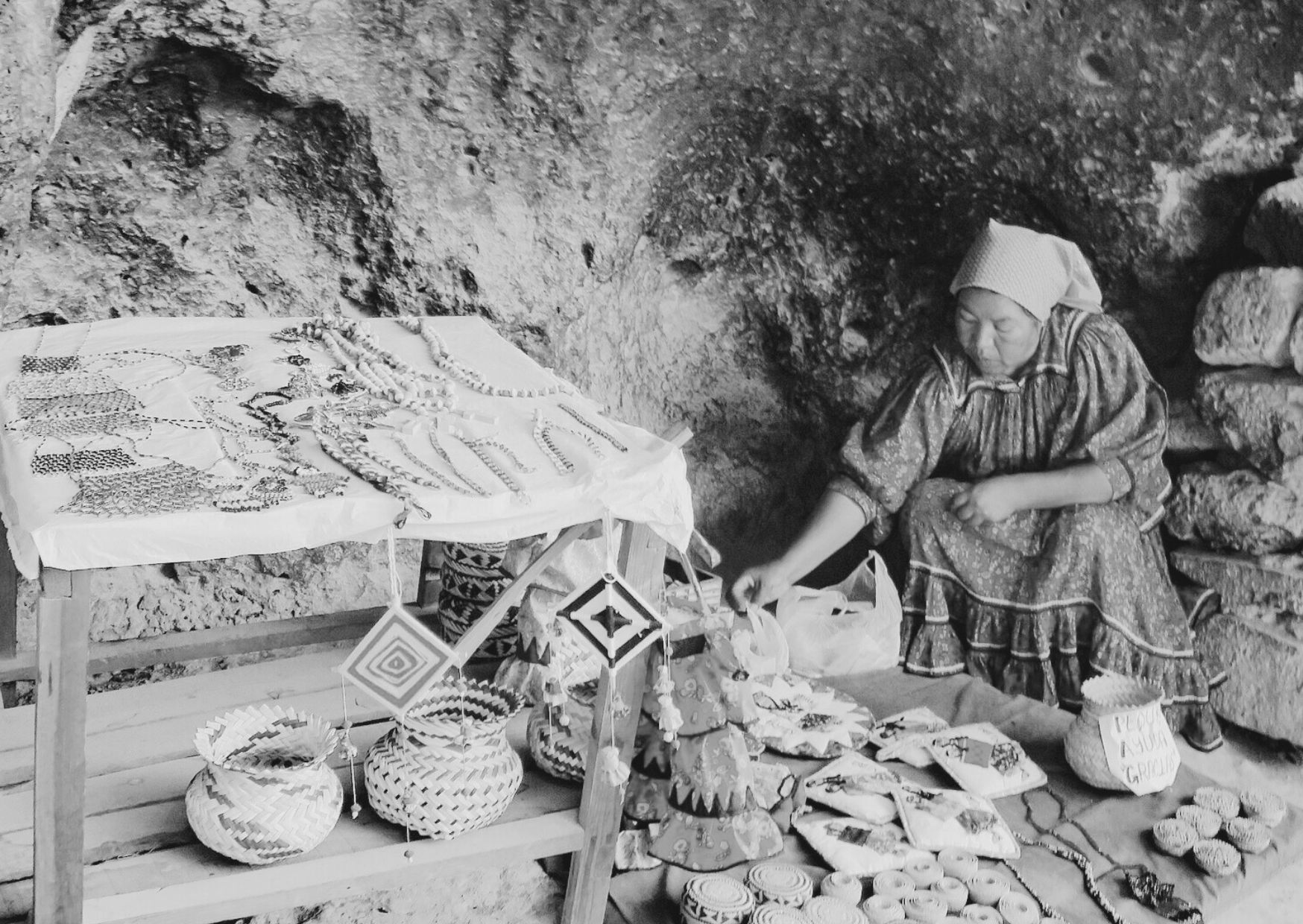 We are very happy to announce a brand new call for grants for heritage projects in Mexico. Our new call for proposals is aimed at organizations, groups, and individuals working with cultural heritage in northern Mexico, in the states of Baja California, Chihuahua, Coahuila, Nuevo Leon, Sonora and Tamaulipas. HERITΛGE will offer grants ranging from USD 10,000 to USD 50,000 per project.
We are very happy to announce a brand new call for grants for heritage projects in Mexico. Our new call for proposals is aimed at organizations, groups, and individuals working with cultural heritage in northern Mexico, in the states of Baja California, Chihuahua, Coahuila, Nuevo Leon, Sonora and Tamaulipas. HERITΛGE will offer grants ranging from USD 10,000 to USD 50,000 per project.
The grants are part of the HerMaP-Mexico, an initiative supported by the Mellon Foundation’s Humanities in Place program, to strengthen cultural heritage management and networks in northern Mexico. They will fund projects that focus on the protection of and/or promotion of local heritage for socio-economic development across the Mexico’s six northern border states.
All projects must clearly focus on the protection, safeguarding, strengthening, and/or promotion of local heritage, from approaches that recognize its cultural, social, and community value.
There are three main criteria for selecting proposals under this program:
- Sustainability- Priority will be given to projects that generate a lasting impact and whose positive effects extend beyond the support period.
- Capacity building and network strengthening – Projects that contribute to strengthening local capacities and establishing or consolidating links with similar organizations within heritage management networks will be encouraged.
- Concrete and Community Impact – Priority will be given to proposals that present clear, measurable, and verifiable results in terms of heritage protection and direct benefits for local communities. Each project must define specific indicators of the expected impact.
This call for proposals is the first phase of the selection process. Following an initial review, the shortlisted projects will be invited to submit an expanded and more detailed proposal. These complete proposals will be evaluated by the HerMaP Mexico program’s Support Committee.
The deadline for submitting proposals for this first phase is April 15, 2026. The final selection of supported projects will be announced no later than July 2026.
Celebrating Progress: The Kayonza Cultural Heritage Center Nears Completion
By Greg Bakunzi | Co-Founder, Red Rocks Rwanda
We’re thrilled to share exciting updates from the heart of Kayonza, where our vision for a vibrant Cultural Heritage Center is now becoming a reality. What began as a dream to blend culture, conservation, and community has now taken solid form, with construction already 70% complete.
Since its founding, Red Rocks Rwanda (RRR) has stood for one big idea: that cultural tourism can be a force for community development. From our home in Musanze to the open plains of the Eastern Province, our work continues to prove that when people take pride in their heritage, they also protect the land that sustains them.
Building with Heart and Heritage
The new Kayonza Center beautifully combines modern design with traditional inspiration. Think of hybrid thatch and metal roofs echoing ancestral homes, handwoven sisal wall art, and furnishings crafted from reclaimed local wood. Each detail tells a story. Even as builders complete the last phases of interior work, artisans are already using finished spaces for craft workshops and storytelling sessions.
Overcoming Challenges with Innovation
No journey is without obstacles. Along the way, we’ve had to navigate strict zoning and environmental regulations, especially in flood-prone areas. But rather than slow us down, these challenges inspired innovation. Working closely with REMA (Rwanda Environment Management Authority), we designed elevated foundations and permeable pavements that protect both our buildings and the environment.
These collaborative solutions turned challenges into opportunities, and something wonderful happened. Community participation grew stronger than ever. Local leaders, once cautious, are now some of our most enthusiastic advocates.
Expanding Our Reach
What started as one cultural center is now inspiring a network of seven connected sites around Kayonza. Each will focus on preserving pastoral traditions and fostering eco-tourism experiences like guided Inyambo cattle sessions, heritage walks, and community storytelling circles.
The Kayonza site is now the anchor for seven interconnected cultural locations, each celebrating Rwanda’s rich pastoral traditions. Visitors will soon enjoy experiences like:
-
Inyambo cattle demonstrations with traditional herders
-
Interactive craft workshops led by local cooperatives
-
Cultural storytelling evenings around communal fires
-
Agro-tourism and heritage trails connecting culture with conservation
Looking Ahead
The Kayonza Cultural Heritage Center isn’t just a construction project; it’s a growing movement for cultural preservation and sustainable livelihoods. Here’s what’s next:
-
Creating 200 new jobs for youth and women by 2026
-
Launching vocational training in crafts, hospitality, and eco-agriculture
-
Developing digital archives to safeguard Rwanda’s herding and farming heritage
-
Linking Kayonza cultural tours with Akagera safaris, opening new tourism opportunities
A Call to Our Supporters
At 80% completion, we’re closer than ever to our goal, but there’s still more work ahead. We extend heartfelt gratitude to our partners, especially the Mellon Foundation and The Heritage Management Organization, whose belief in our mission keeps us moving forward.
We invite you, friends, donors, and cultural enthusiasts, to be part of this next chapter. Your continued support helps us preserve Rwanda’s living heritage while creating lasting opportunities for the communities that call it home.
HERITΛGE 2025 Wrap-Up
In 2025, HERITΛGE continued to translate its mission of community-centred, inclusive, and sustainable heritage management into action across continents. From building local capacity across the world to advancing digital innovation and participatory practice in Europe and beyond, the year was defined by strong partnerships, expanded training, and tangible impact. HERITΛGE’s work in 2025 demonstrated how heritage can act as a driver of resilience, dialogue, and long-term social value, rooted in communities, connected globally, and oriented firmly toward the future.
1.The HerMaP Gambia successful completion
In February, HERITΛGE marked the successful completion of HerMaP Gambia, an initiative co-funded by the EU, by celebrating a milestone in community-driven heritage management. A certificate ceremony and visual art exhibition was held as part of The Gambia’s 60th Independence Anniversary celebrations, bringing together EU representatives, parliamentarians, and the Chair of the National Assembly to honour the dedication of the programme’s trainees. One week later, the Minister of Tourism, Members of Parliament, EU representatives, and a broad range of stakeholders convened for a high-level stakeholder lunch focused on sustaining the transformative results of the project. Already, we are seeing HerMaP Gambia graduates applying their new skills across the country—strengthening local heritage initiatives, engaging communities, and even training others. The programme’s impact is now firmly rooted in the sector, creating momentum that will shape heritage management in The Gambia for years to come.
2. HerMaP Africa: Building Capacity and Partnerships Across Three Countries
In 2025, HERITΛGE deepened its impact across Ethiopia, Ghana, and Rwanda through targeted capacity building, strategic partnerships, and close engagement with local cultural ecosystems, as part of the HerMaP Africa initiative supported by the Mellon Foundation. In Ethiopia, HERITΛGE delivered seven workshops and trained 127 participants, with a strong emphasis on hands-on, in-person conservation training. Notably, conservation workshops in Harar focused on equipping the next generation of staff from the Culture and Tourism Bureau with practical skills to safeguard this unique living heritage site, reinforcing long-term, community-based preservation. Institutional collaboration was further strengthened through the signing of two Memoranda of Understanding with key Ethiopian organisations. In Ghana, HERITΛGE delivered four workshops and trained 80 participants, ensuring broad regional representation and inclusive access to capacity building beyond major urban centres. A national networking roundtable brought together stakeholders and project leaders to exchange experiences, align priorities, and address shared challenges in the heritage sector, alongside the signing of two strategic MoUs. In Rwanda, four workshops trained 78 participants, and three MoUs were signed with leading institutions, including a milestone partnership with the Ministry of Youth and Arts. HERITΛGE also contributed to the Ubumuntu Arts Festival through programme consultations and a participatory session with young creatives, strengthening connections between heritage, contemporary culture, and youth engagement. Across all three countries, a dedicated Train-the-Trainers programme equipped 19 heritage professionals to act as HERITΛGE ambassadors, significantly amplifying local capacity and long-term impact.
3. Small Grants for African Heritage
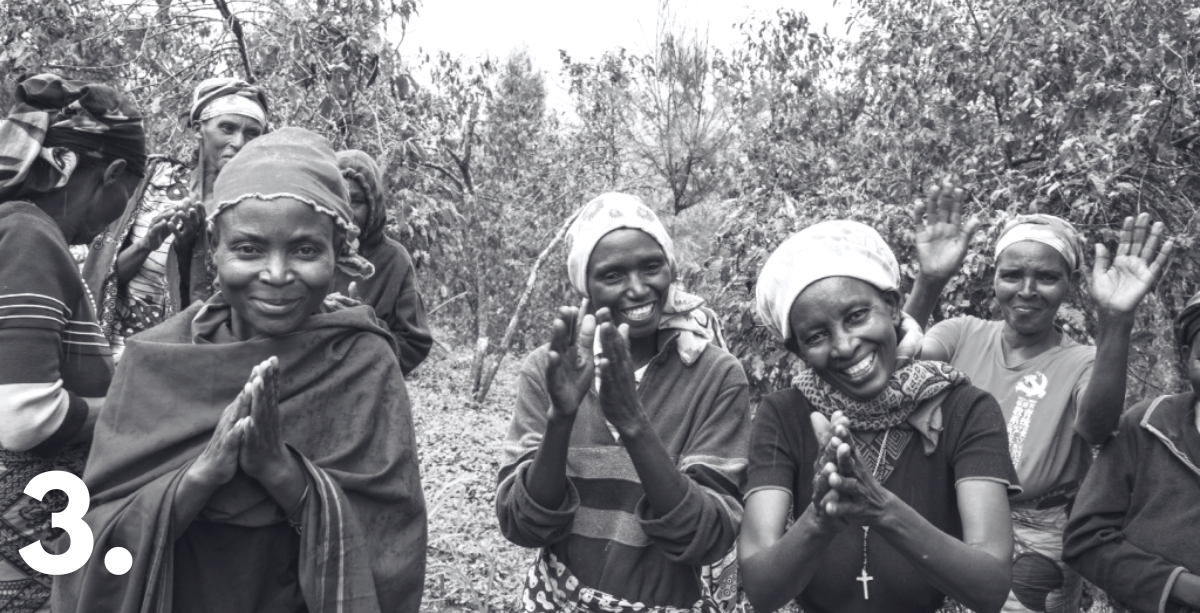 The regranting phase of HerMaP Africa reached its conclusion, marking one of the most ambitious and impactful heritage-support programmes on the continent. Since 2023, HERITΛGE has received more than 2,500 applications from across Africa and funded over 74 small heritage projects, each led by local actors working to safeguard, reinterpret, and activate their cultural heritage. This regranting initiative was made possible with the generous support of the Mellon Foundation. Throughout the year, grantees participated in six regional convenings, creating spaces to exchange experiences, strengthen their skills, and learn from peers—building a growing network of practitioners committed to community-centred heritage work. Several more convenings are planned for 2026 to continue nurturing this collaborative ecosystem. The results have been remarkable: from revitalised cultural practices to restored and more resilient cultural sites, to new opportunities for local development, these projects are already transforming lives. We are proud to showcase this work through dedicated social media features and a new publication that brings together the stories, challenges, and achievements of the HerMaP Africa grantees.
The regranting phase of HerMaP Africa reached its conclusion, marking one of the most ambitious and impactful heritage-support programmes on the continent. Since 2023, HERITΛGE has received more than 2,500 applications from across Africa and funded over 74 small heritage projects, each led by local actors working to safeguard, reinterpret, and activate their cultural heritage. This regranting initiative was made possible with the generous support of the Mellon Foundation. Throughout the year, grantees participated in six regional convenings, creating spaces to exchange experiences, strengthen their skills, and learn from peers—building a growing network of practitioners committed to community-centred heritage work. Several more convenings are planned for 2026 to continue nurturing this collaborative ecosystem. The results have been remarkable: from revitalised cultural practices to restored and more resilient cultural sites, to new opportunities for local development, these projects are already transforming lives. We are proud to showcase this work through dedicated social media features and a new publication that brings together the stories, challenges, and achievements of the HerMaP Africa grantees.
4. HerMaP Mexico: Launching a New Border Region Initiative
This year also marked the launch of HerMaP Mexico, a major new initiative that expands HERITΛGE’s work into North America and supports cultural heritage actors across Mexico’s northern border states. Funded by the Mellon Foundation’s Humanities in Place programme, the project brings a comprehensive, community-focused approach to heritage management through mapping, training, networking, and small grants. In 2025 we established the foundations of the programme: building local partnerships, initiating the mapping of heritage professionals and institutions across six states, and preparing the first round of capacity-building workshops to be delivered in both Spanish and English. HerMaP Mexico responds to the region’s unique cultural landscape—shaped by Indigenous, mestizo, migrant, and Chicano communities—and aims to strengthen local skills while creating new opportunities for collaboration and sustainable development. As the project moves forward, it will support locally led initiatives and grow into a long-term platform that connects heritage practitioners across the border region with global networks and resources.
5. Professional Training and Executive Leadership Education Programmes
HERITΛGE continued to strengthen its leadership in professional training by expanding its Executive Leadership Education programmes and reinforcing its global learning community. A key milestone was the introduction of Community Tourism and Development into the curriculum, responding to the growing need for heritage managers to understand how cultural resources can generate sustainable economic benefits while reinforcing social cohesion, identity, and community resilience. This year also saw the first alumni conference of the Engaging Communities in Cultural Heritage Summer School, bringing together former participants from around the world to share research, field experiences, and community-based practices. Alongside this, HERITΛGE successfully delivered its Conservation Series Training Programmes for the second time, expanding the offer to include First Aid for Finds and Preventive Conservation, and equipping participants with practical skills applicable across diverse heritage contexts. The Training of Trainers (ToT) programme continued to grow, building a global cohort of HERITΛGE Ambassadors—heritage professionals trained to deliver high-quality, cross-cultural capacity building within their own communities. Together, these initiatives reflect HERITΛGE’s ongoing commitment to community-centred heritage management, interdisciplinary collaboration, and the empowerment of professionals working at the intersection of culture, development, and sustainability, supported by a vibrant international network united by shared values and collective impact.
6. Advancing Audience-Centred Heritage Practice through AHEAD
In 2025, HERITΛGE advanced its work on audience-centred heritage practice through AHEAD (Accessible Heritage Experience for Audience Development), a project co-funded by Creative Europe and dedicated to strengthening participation, co-creation, and sustainability across the cultural heritage sector. At the Archaeological Museum of Messara, the project’s Greek hub, HERITΛGE hosted a series of co-creation labs in early 2025, followed by a study visit for AHEAD project partners in May, creating space for peer learning and in-depth exchange around participatory heritage approaches. In July, the 3rd AHEAD Networking Event brought together practitioners and researchers, and featured the presentation of the Living Heritage Network in Greece by Theodosia Maroutsi, highlighting how community-led approaches can be embedded in national heritage ecosystems. In September, HERITΛGE organised a dedicated Multiplier event in Athens to share the results of AHEAD with heritage managers, researchers, and cultural professionals. The project culminated in October with the presentation of AHEAD and its outcomes in Brussels and, for the Greek hub, a public event at the Archaeological Museum of Messara, where Elektra Angelopoulou, the project’s artist-in-residence, presented a site-specific artwork co-created with the local community. Alongside these events, AHEAD produced a dedicated magazine and learning resources that document the project’s insights and offer practical tools for fostering co-creation, inclusion, and long-term sustainability in cultural heritage practice.
7. SHIFT: Inclusive Digital Innovation for the Future of Cultural Heritage
HERITΛGE and its SHIFT consortium partners concluded this ambitious Horizon Europe project aimed at making cultural heritage more accessible, inclusive, and engaging through advanced technologies. Over its lifetime, SHIFT delivered a suite of innovative tools—including an Image-to-Video generator, affective speech synthesis, haptics interfaces, and a platform designed to support inclusive digital storytelling—alongside a pioneering Extended Reality (XR) Accessibility Framework. These results were tested and refined through four pilot events in Germany, Hungary, Romania, and Serbia, ensuring that the tools responded to real needs within museums, libraries, and cultural organisations. The project’s achievements were showcased at major gatherings such as the Digital Heritage World Congress and Expo in Siena, highlighting SHIFT’s contribution to the future of digital cultural heritage. As part of our commitment to long-term impact, HERITΛGE developed a set of training modules to equip cultural heritage professionals with the skills they need to adopt and apply these new technologies in their own contexts.
8. Strengthening a National Platform for Living Heritage
HERITΛGE strengthened its commitment to living heritage in Greece as a founding member of the country’s Living Heritage Network, with our Greek Programmes Manager, Theodosia Maroutsi, serving for the third year on its coordinating committee. In this role, HERITΛGE actively contributed to the Network’s 2nd National Meeting, held in Athens on 21–23 February, a major highlight of the year, where Theodosia welcomed participants and drove the dialogue during the “Living Heritage Network: Formation and Perspectives” roundtable “ reflecting on the Network’s development and future direction. HERITΛGE also delivered one of the leading side events of the 2nd National Meeting, a hands-on workshop, for 30 participants, titled “Working on the Narrative Interpretation of Living Cultural Heritage,” supporting practitioners in exploring narrative approaches to interpreting living heritage. Our impact extended well beyond the 2nd National Meeting’s floor. HERITΛGE was instrumental in drafting the Network’s Mapping Questionnaire, which was also launched in autumn of 2025. This Mapping is a crucial initiative designed to identify the essential needs of the living heritage ecosystem. The Network’s work was further amplified through HERITΛGE’s involvement in European projects: it was featured in AHEAD, where Theodosia participated in the 3rd Online Networking Event and was interviewed for the project’s magazine—freely available in English, Greek, Italian, and Spanish—and in EMPATHS, where the Network informed stakeholder mapping, cross-sector interviews, and co-design findings. Together, these activities positioned the Living Heritage Network as a key grassroots platform for participatory, community-led heritage practice in Greece and beyond.
9. Safeguarding Pakistan’s Most Significant and Vulnerable Cultural Landscapes
HERITΛGE and our partners completed the first phase of the project Preservation of Buddhist Rock Reliefs in the Swat Valley, safeguarding one of Pakistan’s most significant and vulnerable cultural landscapes. The initiative documented and conserved Buddhist rock carvings dating from the 8th to the 10th centuries, while also recording oral histories, legends, and traditional arts and crafts that link Pashtun culture with the Valley’s Buddhist past. Using advanced digital techniques, 78 rock reliefs were documented and made accessible through a public website featuring interactive maps and 3D models, and first aid conservation was carried out on 39 of the most at-risk sites. Capacity building was central to the project, with local participants trained in digital documentation and climate change adaptation. This first phase concluded with a public event at the Swat Museum and was presented internationally, including at the Lahore Museum, the Venice Biennale, and COP30, where it was cited as a strong example of heritage resilience in the face of climate change. Funded by the British Council’s Cultural Protection Fund and implemented with local and international partners, the project demonstrates how conservation, community engagement, and digital innovation can work together to protect heritage for future generations.
10. EMPATHS: Advancing Participatory Heritage Interpretation Across Europe
In 2025, HERITΛGE deepened its engagement in the Erasmus+–funded EMPATHS project, which aims to equip heritage professionals with the skills needed for participatory, community-driven heritage interpretation. Early in the year, the project contributed to international dialogue through a LDnet webinar on empowering local communities for smart and sustainable cultural heritage, while in May it published the EMPATHS Baseline Report, offering a comprehensive overview of current practices, challenges, and opportunities in participatory heritage interpretation across Europe and beyond. EMPATHS was further showcased at the European Association of Archaeologists (EAA) Congress in Belgrade, through the session “Voices of the Past, Hands of the Present: Collaborative Pathways in Archaeology and Heritage Interpretation.” In parallel, HERITΛGE led two online co-design sessions in Greece with heritage professionals from Alexandroupoli and Rizía, marking the project’s first structured dialogue between technical partners and piloting organisations and directly informing the design of the forthcoming training programme. Over the summer, EMPATHS published four key deliverables, including stakeholder mapping, cross-sector interviews, and co-design findings, all reinforcing the demand for skills in facilitation, storytelling, and emotionally resonant communication. The year culminated with the project’s second Transnational Project Meeting in Athens, where partners advanced work on the EMPATHS methodological compendium and training framework, the presentation of the project during a Global Alliance for Heritage Interpretation Webinar, and, importantly, with the publication of the EMPATHS Manifesto—a collective call to move beyond top-down interpretation and embrace heritage as a shared, democratic, and future-oriented process shaped with communities.
11. Community-Led Preservation of Earthen Architecture in Shibam, Yemen
In Yemen, HERITΛGE advanced a major effort to safeguard the cultural heritage of Shibam through the ALIPH-funded project Preserving the Unique Earthen Architecture of Shibam. In early 2025, museum experts Shatha Safi and Khulod Najjar travelled to the UNESCO World Heritage city to guide the community-led planning of a new museum that will bring together collections currently scattered across Shibam and create dedicated spaces for traditional arts, crafts, and digital learning. Their visit marked a pivotal moment in the project, with consultations held with local authorities, heritage institutions, and women from the community to ensure the museum reflects the lived experiences, history, and aspirations of Shibam’s residents. Alongside this vision-setting, HERITΛGE is training local professionals on-site, with four trainees already working with our team on the documentation of the South Palace—future home of the museum. Complemented by architectural assessments and a climate action study, the project is laying the groundwork for a resilient cultural hub that will support preservation and community engagement for years to come.
12. Safeguarding Architectural Heritage in Times of War in Ukraine
In Ukraine, HERITΛGE advanced critical work to protect architectural heritage threatened by war through the project Architectural Heritage Preservation in Times of War: The Ukrainian Model, delivered with the Kharkiv School of Architecture and 3D documentation specialists Skeiron. Launched in September 2024, the programme trained 30 students and 10 educators from across the country in cutting-edge documentation and conservation techniques—from photogrammetry and 3D laser scanning to international heritage standards—while providing hands-on field internships in Western Ukraine. Together, they created high-resolution digital records of 15 at-risk sites, safeguarding knowledge even as physical structures remain vulnerable. Through educator training and a series of public webinars, the project also planted the seeds for a new nationwide curriculum in architectural heritage preservation. Its impact extends far beyond a single academic year: it has built a cohort of young architects and teachers equipped with the skills, networks, and resolve to protect Ukraine’s cultural memory during conflict and beyond. Their work stands as a reminder that preserving heritage is not only an act of conservation, but an act of resilience and recovery.
13. New Projects for the Digital Transformation of Cultural Heritage
 In 2025, HERITΛGE became a consortium partner in two new projects funded under the EU’s Horizon Europe programme, both contributing to the ECHOES initiative and the development of the European Collaborative Cloud for Cultural Heritage (ECCCH). ECHOES aims to establish a shared digital infrastructure that brings together currently fragmented cultural heritage communities, offering access to data, advanced digital tools, scientific resources, and training materials developed collaboratively by heritage professionals and researchers. HERITΛGE participates in MusicSphere, a project dedicated to preserving and interpreting traditional musical organs—such as pipe organs and their ancient Greek counterpart, the hydraulis—through high-fidelity digital replicas, acoustic modelling, and immersive virtual and augmented reality experiences that capture both their physical structure and sonic interaction with architectural spaces. HERITΛGE is also a partner in EXCALIBUR, which focuses on burial sites, excavation contexts, artefacts, and human remains, developing human-centred, affordable digital twin technologies to support research, conservation, restoration, and museum interpretation. Together, these projects contribute to the long-term preservation, study, and public understanding of complex heritage assets, while ensuring that open, interoperable, and practitioner-driven tools are shared through the ECCCH platform for broad professional and societal impact.
In 2025, HERITΛGE became a consortium partner in two new projects funded under the EU’s Horizon Europe programme, both contributing to the ECHOES initiative and the development of the European Collaborative Cloud for Cultural Heritage (ECCCH). ECHOES aims to establish a shared digital infrastructure that brings together currently fragmented cultural heritage communities, offering access to data, advanced digital tools, scientific resources, and training materials developed collaboratively by heritage professionals and researchers. HERITΛGE participates in MusicSphere, a project dedicated to preserving and interpreting traditional musical organs—such as pipe organs and their ancient Greek counterpart, the hydraulis—through high-fidelity digital replicas, acoustic modelling, and immersive virtual and augmented reality experiences that capture both their physical structure and sonic interaction with architectural spaces. HERITΛGE is also a partner in EXCALIBUR, which focuses on burial sites, excavation contexts, artefacts, and human remains, developing human-centred, affordable digital twin technologies to support research, conservation, restoration, and museum interpretation. Together, these projects contribute to the long-term preservation, study, and public understanding of complex heritage assets, while ensuring that open, interoperable, and practitioner-driven tools are shared through the ECCCH platform for broad professional and societal impact.
Fifth Online Networking Convening of Africa Grantees
Building Peace Across Borders in East Africa. Members of women’s forums are enjoying their newfound voice and role in cross border peace building. USAID’s PEACE III supports key actors, including local leaders, women and youth in the targeted cross-border cluster areas to deepen and broaden transformative social reconciliation processes.
More:
Photo Credit: Tine Frank /USAID East Africa Regional. Original public domain image from Flickr
On 29 October 2025, the HERITΛGE Africa Grants Team hosted its fifth network convening bringing together grantees, HERITΛGE staff, Re-granting Committee members, representatives from the Mellon Foundation, and other African donors. 65 people attended the meeting. The convening differed from previous ones as it included simultaneous interpretation to accommodate Francophone speakers, who represented the majority of presenters, which was valuable.
The session opened with welcoming remarks from Richard A. Brown, with eleven grantees then presenting their work. These covered projects in Guinea, Benin, Burkina Faso, the Democratic Republic of Congo, Niger, Cameroon, Uganda, Nigeria, Egypt, and Côte d’Ivoire. Projects ranged from mapping and documenting cultural heritage in Guinea to the restoration of cultural sites and the promotion of sustainable tourism and heritage museums across Africa.*
Following the presentations, participants joined breakout rooms organised by project type. These smaller groups facilitated discussions on challenges faced during project implementation, opportunities for collaboration, and strategies for engaging local communities and governments. Participants shared experiences, best practices, and networking contacts, highlighting the value of HERITΛGE workshops and the importance of training in areas such as heritage marketing, documentation, and sustainable tourism.
This fifth convening reinforced the importance of these gatherings as spaces for knowledge exchange, peer learning, and fostering collaboration across diverse heritage projects. It also highlighted the need to maintain inclusive practices, such as interpretation services, to ensure all grantees can actively participate. HERITΛGE will continue to provide support and explore structured plans for future in-person and virtual engagements.
*Lansana Keita, Guinea: ‘Mapping and documenting cultural heritage of Guinée Forestière’
Franck Serge Wouantègnon Alokpowanou, Benin: ‘Renovation and innovative management of the Ondo sacred forest of Pobe’
Louis Hermann Tinwende Nikiema, Burkina Faso: ‘Restoration of Cultural Heritage’ (‘Restauration du Patrimonie Culturel’)
Katalay Katy Bumba Jean-Paul, Democratic Republic of Congo: ‘Transformation of the colonial residence in a tourism and community center’
Adiza Amadou, Niger: ‘Preserving the Tradition of Handweaving in Niger’
Dr Loumpet Germain, Cameroon: ‘Conservation and Enhancement of a Biodiversity Site Among the Pygmies (Sauvegarde, valorisation un site de biodiversité chez les Pygmées)’
Mfitundinda Herbert, Uganda: ‘Enhancing Indigenous Batwa Livelihood Through Cultural Heritage Experiences in Uganda’
Geofrey Junior Waako, Uganda: ‘Cultural Oasis: Jinja’s Sustainable Heritage Hub’
Adeoluwa Onamade, Nigeria: ‘Sustainable Project to strengthen Bilikisu-Sungbo heritage’
Hassan Refaat Hassan Badawy, Egypt: ‘Documentation and Marketing of El- Quseir’s ICH for Sustainable Community Development’
Edi Ako Victorien Constant, Cote d’Ivoire: ‘Cooperative Training in the Animation of a Community Agricultural Museum in Agboville: The MCAA Project’ (‘Formation coopérative à l’animation d’un Musée Communautaire Agricole à Agboville : Le Projet MCAA’)
This was the fifth out of six planned events aimed at showcasing projects funded through our Small Grants for African Heritage Projects initiative, made possible through generous funding by the Mellon Foundation. 75 projects have received around $1million in funding. You can read more about the specific projects on our Africa Grants page which is continually being updated.
HERITΛGE Grantee Wins 2025 UNESCO–Japan Prize on Education for Sustainable Development
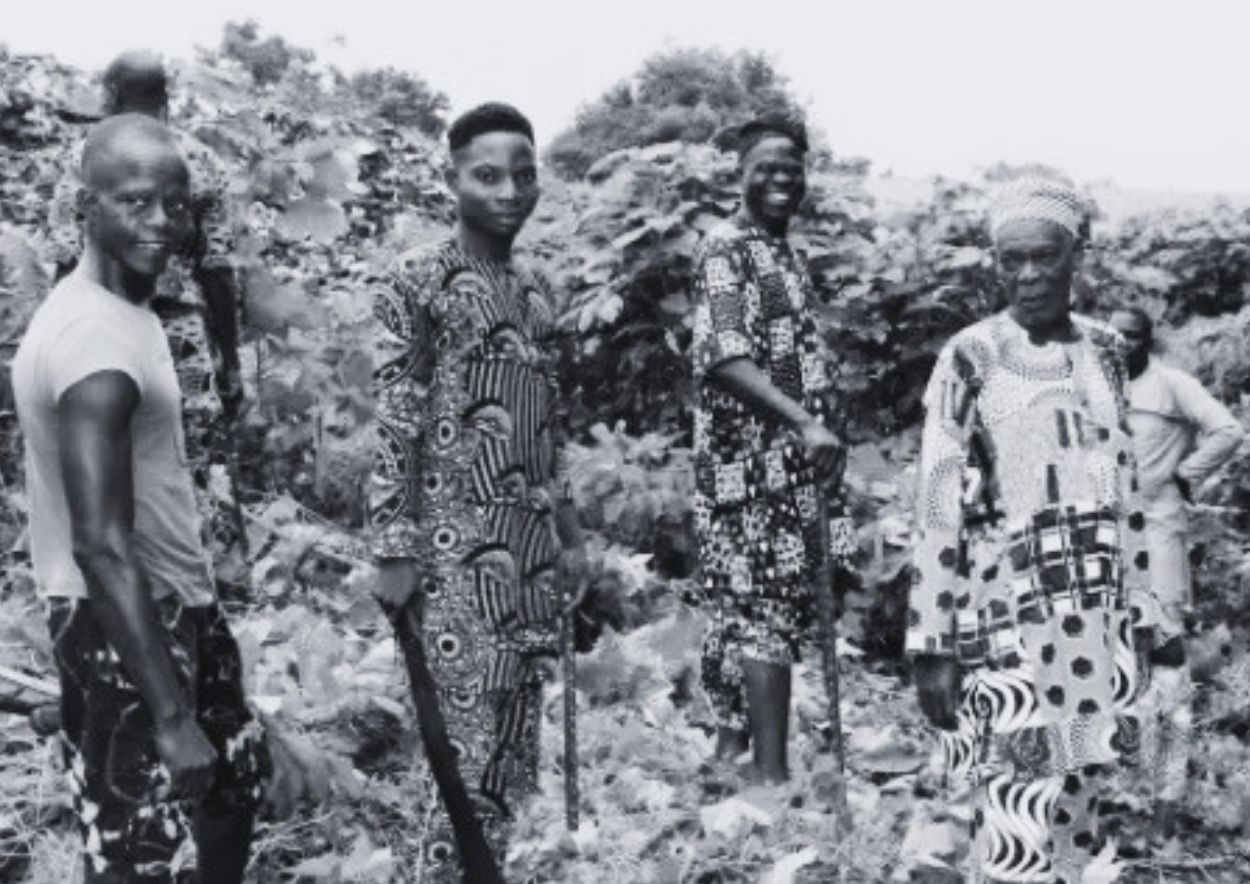 HERITΛGE is proud to announce that one of the projects funded through our Small Grants for Africa initiative—made possible with support from the Mellon Foundation’s Humanities in Place program—has been selected as a laureate of the 2025 UNESCO–Japan Prize on Education for Sustainable Development (ESD). This global recognition celebrates outstanding and transformative initiatives advancing sustainability through education and community engagement.
HERITΛGE is proud to announce that one of the projects funded through our Small Grants for Africa initiative—made possible with support from the Mellon Foundation’s Humanities in Place program—has been selected as a laureate of the 2025 UNESCO–Japan Prize on Education for Sustainable Development (ESD). This global recognition celebrates outstanding and transformative initiatives advancing sustainability through education and community engagement.
Selected from 120 nominations worldwide, Culture at the Heart of Development (CACD-NGO) from Benin received the award for its innovative project, “Restoration and Innovative Management of the Ookpo Sacred Forest in Pobè.” The prize was awarded during a ceremony at UNESCO Headquarters in Paris on 20 November 2025, with each laureate receiving US $50,000.
A Model of Sustainability Rooted in Cultural Heritage
Launched in 2019, the project focuses on safeguarding the Ookpo Sacred Forest, dedicated to the Ondo (Oranyan) deity. Supported by HERITΛGE’s Small Grants for Africa program, the initiative showcases how cultural heritage can serve as a powerful platform for sustainable development.
CACD-NGO’s work integrates traditional knowledge with modern tools—including digital outreach, heritage education, and ecotourism development—to create a transformative model of Education for Sustainable Development that:
- Revitalizes sacred forest heritage
- Strengthens climate resilience through conservation
- Engages youth and community members in sustainable practices
- Combines cultural knowledge with digital innovation
- Supports nature-based economic development and job creation
An independent international jury praised the project for its “outstanding contribution to transforming local communities through its effective blend of cultural revitalization, digital innovation, and nature-based economic development.” The initiative’s social impact—spanning environmental protection, youth empowerment, and livelihood creation—was central to its selection as a 2025 laureate.
HERITΛGE celebrates this achievement as a profound affirmation of the leadership and creativity of African heritage organizations working at the intersection of culture, sustainability, and community well-being. We are honored to have supported CACD-NGO and proud to see their work recognized on the global stage.
“We extend our warmest congratulations to CACD-NGO on this remarkable achievement and look forward to the continued growth and impact of their work. This is excellent news, and we are so proud that this work is being recognised internationally” said HERITΛGE Director Dr. Evangelos Kyriakidis.
Project manager Franck Serge W. Alokpowanou contacted HERITΛGE to share the news.
“We are delighted to share this distinction with you and to express our sincere gratitude for your support and partnership, which made this achievement possible,” he said.
The success of this project underscores HERITΛGE’s commitment—supported by the Mellon Foundation—to advancing heritage-centered approaches to sustainable development across Africa. Through the Small Grants for Africa program, we continue to empower local organizations that are preserving heritage, fostering resilience, and driving positive social transformation.
Read more about the Awards and all three laureates here.
Fourth Online Networking Convening of Africa Grantees
On 3 September 2025, the HERITΛGE Africa Grants Team held the fourth online networking convening for grantees awarded in 2024. The meeting brought together grantees, Heritage staff, committee members, Mellon Foundation representatives, and other African donors, with 76 attendees.
After welcoming remarks by Richard A. Brown and an introduction to the day’s agenda by HERITΛGE Director, Evangelos Kyriakidis, eleven grantees shared their projects. These ranged from protecting Ethiopia’s Azwa Maryam Monastery to revitalizing Namibia’s Oshikulu Cultural Village, and from creating inclusive museum spaces in South Africa to empowering community-based tourism in Rwanda.
“What we are learning, we are impacting our communities and our leadership to say that this is what we are, where we are going and all of these have been made possible just because we are part of this fellowship”
Moses Mkumpha, Malawi
Following the presentations, the conversation turned to capacity-building and HERITΛGE’s training programmes. Past participants shared how these courses had strengthened their projects, expanded their professional networks, and provided practical skills in fundraising, project management, and heritage conservation. Grantees from Sudan, Nigeria, Malawi, Botswana, Zambia, Ethiopia, South Africa, and Namibia* described how the trainings had been transformative, enabling them to achieve higher success in proposal writing, project implementation, and community engagement, while also inspiring leadership and innovation. The breakout discussions allowed participants to continue sharing experiences and reflect on how these opportunities enhanced their work and impact.
The fourth convening highlighted the value of combining financial support with professional development, reinforcing HERITΛGE’s commitment to strengthening heritage initiatives across Africa and fostering a growing community of heritage professionals. The session left participants energised and motivated to apply their learnings, collaborate across borders, and continue advancing the preservation and promotion of African heritage.
The participants and projects featured were:
Getaneh Addis Tessema, Ethiopia: ‘Protection and Promotion of Azwa Maryam Monastery’
Francis Kwarayire, Ghana: ‘Re-use of Old Cocoa Shed Building as a Contemporary Art Museum’
Aisha Pearl Mayekiso, South Africa: ‘Creating inclusive museum spaces, products, and services for all’
Adebunmi Akinbo, Nigeria: ‘Restoring Ilukwe House – A research center promoting Nigerian heritage’
Gasenone Kediseng, Botswana: ‘Khama III Memorial Museum Kitchen and Restaurant’
Dounama Biri, Niger: ‘Art Culture and Heritage of the Women of Boubon Niger’
Foday Dampha, The Gambia: ‘Rehabilitation of Genieri Community Museum and Building of Human Capacities’
Ahmed Magem, Nigeria: ‘Restoration, Preservation and Protection of Tangale Culture and Heritage’
Ursha Faal, The Gambia: ‘Fulani Heritage Haven’
Greg Bacunzi, Rwanda: ‘Empowering Youth and Women in Community-based Tourism’
Serak S O Shidhudhu, Namibia: ‘Oshikulu Cultural Village – Revitalizing Cultural Roots: Safeguarding Heritage, Empowering Communities’
This was the fourth out of six planned events aimed at showcasing projects funded through our Small Grants for African Heritage Projects initiative, made possible through generous funding by the Mellon Foundation. 75 projects have received around $1million in funding. You can read more about the specific projects on our Africa Grants page.

